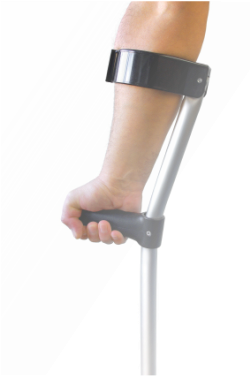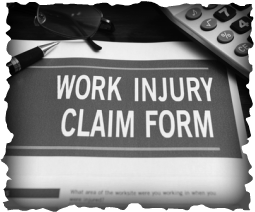 Image Source: msnbc.msn.com It is said that only 30 percent of initial Social Security disability claims are approved by the Social Security Administration (SSA). Meanwhile, there are only three possibilities that may happen to the remaining 70 percent of claims. Applicants may forget their claims (giving up their right to benefits in the process). Some may file a disability claim anew. Some others, however, may pursue an approval by reversing the decision via an appeal. Accordingly, if your claim was denied by the Social Security Administration (SSA), then it would be best that you do the third one, which is to have the federal agency reverse its previous decision through an appeal. You can do so within 60 days of your receipt of the SSA’s letter notifying that your claim has been denied. Incidentally, one of the most important parts of the appeal is the disability hearing. It is an informal hearing presided over by an administrative law judge (ALJ). If you get denied during the first stage of the appeal ( the reconsideration stage), it is best that you try again and go for the disability hearing. To help you out in the whole process, retaining the services of any Los Angeles Social Security claim lawyers will suffice. Coming in prepared for the disability hearing is very important. The first thing that you must consider when you prepare for it is to retain the services of the said lawyer. With your reputable lawyer at the helm, the chances of getting your claim approved at the hearing will increase. Your lawyer can handle your case properly, as well as explain during the hearing why you are qualified for disability benefits. Also, before the scheduled date of the hearing is provided to you, it is best that you collect additional medical records for your disability claim. First, though, you must review the records that the Social Security office used to determine if you are disabled or not. Point of advice: take advantage of the opportunity after reviewing your claim. If you feel like you’ve missed out on important information in your previous claim, it would be best to include them prior to submitting your claim before the disability hearing. Source: http://www.socialsecurity-disability.org/blog/how-prepare-social-security-disability-hearing
 Image Source: Metro.co.uk Any worker who gets disabled because of a physical or mental ailment may apply for Social Security Disability Insurance (SSDI) benefits. Once approved, not only will he or she receive monthly benefits, but also his or her dependents, particularly his or her children. Every month, nearly 4.4 million children receive around $2.5 billion worth of benefits from their parents who are disabled. They also receive them if one or both their parents are either retired or deceased. Consequently, the amount of benefits they receive would help them sustain the necessities needed for them to live. Such Social Security benefits keep the family’s financial future stable. If you have a child and you are receiving SSDI benefits, your child can also get benefits as long as your child is: · Your biological son or daughter; · Your adopted child; or · Your dependent stepchild. The child must also fulfill the following requirements for him or her to receive disability benefits: · Must be unmarried; · Younger than 18 years old; · 18 to 19 years old and a full-time student who is not higher than Grade 12; or · 18 or older and also disabled. Note that in the fourth requirement, your child’s disability must have started before he or she reached the age of 22. In applying for benefits for your child, you must present his or her birth certificate and Social Security number, as well as your own SS number. If you are applying for disability benefits for your child, you have to collect medical proof that would help prove his or her disability. Accordingly, the SSA could give your child’s claim either an approval or a denial. If you disagree with the latter, you can always file an appeal on behalf of your child. In this regard, it is advised that you retain the services of any Los Angeles Social Security Claim Lawyers.
Workers who are unable to work because of a disability should keep in mind that being partially impaired doesn’t qualify them for Social Security disability benefits. Accordingly, if you have a partial disability and you want to acquire benefits, you should talk with a Los Angeles disability lawyer to explore your possible options.  Image credits to disabilityquotes.com  Image credits to Workerscompfl.com To begin with, the Social Security Disability Insurance (SSDI) program of the Social Security Administration (SSA) is designed to help people with total disability. Accordingly, to become eligible for SSDI benefits, you must meet the following criteria: · You are unable to perform work you once did;
· You are unable to carry out any kind of work because of your disability; and
· Your medical condition is expected to last for at least a year or is expected to result in death. Medical proof is needed to be qualified for this program. You must have enough evidence that you indeed have a total disability, from lab results, clinical tests, doctor’s diagnosis, to your doctor’s statements regarding your limitations brought by your medical condition. The SSA would then determine if your disability falls on their Impairment Listing Manual or “ Blue Book.” If the federal agency verifies your disability, then you are automatically qualified for total disability. Incidentally, SSDI does not cover partial or even short-term disability; however, you can still qualify for other benefits, such as the following: · Worker’s compensation. If you got injured or you incurred a disability while you are on the job, you can receive worker’s compensation benefits. This program is designed to provide employees like you who were injured on the job with supplementary income and costs that are enough to cover your medical recovery and rehabilitation. · Long-term disability benefits. This is another option in which you can receive compensation so that you can recover from your injury right away. However, you may have to still work on a job, albeit on a less hazardous environment that wouldn’t compromise your condition and your recovery.
When you apply for Social Security Disability Insurance (SSDI) benefits, it is important that you submit all the needed information for the Social Security Administration (SSA) to review your claim. Filling-up paperwork and gathering documents can be a daunting task, but doing so will greatly affect your chances of getting approved and having your claim reviewed faster. The SSA lists information regarding on how to apply and what documents you need to file on their Adult Disability Checklist. Before you start the disability process, it is important that you review the checklist to ensure that the information you will be gathering are complete. In order for the SSA to expedite the review of your claim and to receive benefits faster, here are the complete documents you need to include in your claim for Social Security benefits: - Birth certificate and/or proof of US citizenship or legal residency if born from foreign a country.
- Form DD 214 (military discharge information) and proof of military pay
- Last year’s income tax return (W-2 form)
- Medical records – The SSA can gather all of the necessary records, but if you already secured them, copies should be included when you submit the claim
- Employment information that includes your years of work, current and past working experiences
- Workers’ Compensation documentation – This can greatly affect you benefits once you receive the SSA’s approval. Information needed include your injury date, claim number, agreement, and proof of other disability awarded payments
- Names, birthdates and Social Security numbers of your spouse and your children
- Names and contact numbers of friends or family members in case you cannot be reached
- Names and contact numbers of all the doctors, nurses and medical professionals, as well as all of the medical establishments who has treated you for your medical condition.
- Dates in which you received treatment
- Prescribed medications that you are currently taking
- Checking and savings account numbers in which your benefits will be directly deposited
- Information about all your marriages and divorces
|





 RSS Feed
RSS Feed